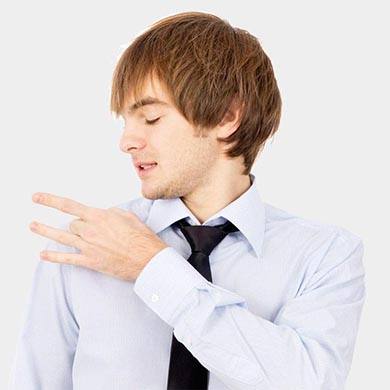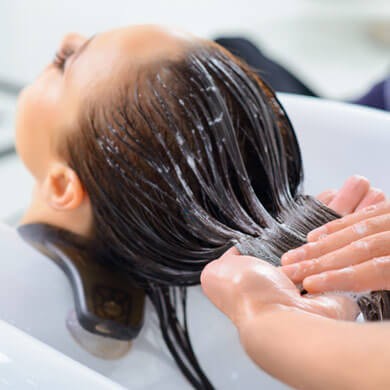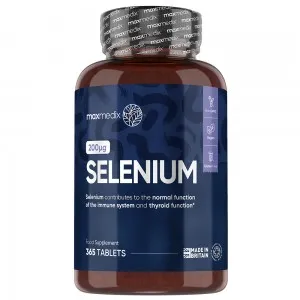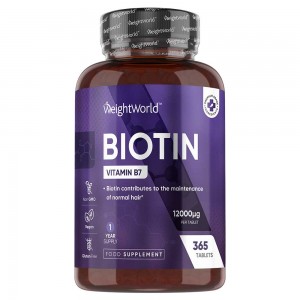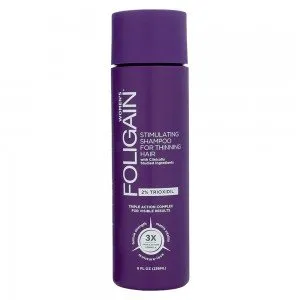What Is Dry Hair?
Dry hair describes hair that lacks moisture and feels brittle, hard and frizzy. Inadequate moisture can be caused by internal sources such as the ageing process because we produce less natural oil as we grow older leading to dry skin and hair. It can also be due to external sources such as too much hair straightening, overexposure to the sun or an over-use of damaging hair products.
5 Causes Of Dry Hair
Dry hair is unsightly and difficult to manage, but with excessive dependence on styling and chemical treatments to change the look of your natural locks, it can be difficult to avoid. Here are some potential causes of dry hair:
1. Weather - Extreme temperatures can cause havoc with your hair. Cold, harsh weather can strip the natural moisture from your hair and causes dry hair and scalp.
2. Over washing - Excessive washing also steals away the natural oils making hair frizzy and dry. Washing your hair 2-3 times a week is permissible to keep it clean.
3. Heating and styling tools - Harsh, heat-filled styling routines can cause havoc with your tresses, particularly if your diet is poor and you're experiencing hormone fluctuation like menopause too.
4. Hormonal changes - Plummeting oestrogen levels can also lead to dry hair. Genetics can also cause dry hair so if someone in your family has dry and damaged hair from early years, you can be affected too. Older hair is likely to be affected by hormones whether it's curly or fine as menopause causes a big drop in oestrogen which has a drying effect on the skin and hair.
5. Medication - Certain medicines used for high blood pressure, weight loss, acne or antidepressants can also affect hair follicles from within and lead to damaged and dry hair.
Home Remedies For Dry Hair
- The first step is to change your shampoo to a specific dry hair shampoo. The best dry hair shampoo will infuse your hair with moisture and work gently to remove sebum and dirt.
- If you’re experiencing hair loss because your hair is parched, consider a hair regrowth shampoo that stimulates follicles to produce healthy new growth.
- You should also think about how often you wash your hair because over-washing leads to dryness. Washing your hair every other day is more than enough, but some experts recommend washing dry hair just 3 times a week.
- When you wash your hair, avoid shampooing the tips which are the driest and most prone to breakage. Shampoo will gently wash the hair as it slides down the lengths, so concentrate your efforts on the scalp but be gentle and don’t scrub. Putting a small amount of shampoo onto your scalp and using a circular motion is sufficient.
- You'll also need a treatment for dry hair such as an intensive moisturiser, hair masque or oil. You can buy ready-made hair oils if you’re short on time or you can make your own with coconut and olive oil.
- Rub oils into your scalp and along the hair shaft to infuse moisture, and for an extra boost wrap a warm towel around your head for twenty minutes as this will tame tangles and fight against dehydration.
- When you rinse your hair clean use lukewarm water or if you can bear it, use cold water because this helps to close the hair shaft and keep that newly infused moisture locked away.
- If you have curly hair it’s likely you’ll need more treatments for dry hair because its curly nature prevents natural moisturising oils moving down the shaft easily. Fine hair, however, needs fewer treatments to avoid weighing it down and creating a flat look.
- You can also use a dry shampoo on occasions where you need a fresh look. The use of dry shampoos must also be restricted to once or twice a week as it can steal the moisture from your hair making it dry.
Treating Dry Hair
No-one likes to have dry hair because it feels wiry, unhealthy and is difficult to style but thankfully there are ways to improve dry hair if you’re suffering its effects:
Fix your diet
If your diet is poor this will show in your hair. Women and men that eat a wide variety of healthy foods including oily fish, lean meat, leafy green vegetables, nuts, beans, and fruit have healthier hair than those who eat too much fat, sugar and salt. When nutrition is poor your body doesn’t have the building blocks of protein, iron and all the vitamins it needs to produce healthy hair so it will become dry and unhealthy. It’s also a good idea to monitor your water intake so consider whether you’re getting the recommended 8 glasses a day. If not it can create dry hair because your body needs water to function properly. It makes sense to top up on water whenever you can to boost your moisture levels.A doctor’s check-up
If you have extremely dry hair, it's worth seeing your doctor for a check-up because hair changes can indicate an underlying condition. Autoimmune disease, anaemia, and thyroid issues all contribute to dry, brittle or coarse hair so getting treatment will help fix your hair troubles.Improve Your Styling Routine
Don’t brush your hair often, as this can cause breakage; try to keep brushing to once in the morning if possible and use a good quality non-metal brush or wide tooth comb that doesn’t pull and tug on your strands. You should only brush your hair when it’s dried because wet strands are more vulnerable to damage and breakage.Using Hair styling products
Hair dryers, straighteners, curling irons and heated rollers pull the moisture out of hair, but we’re more likely to use them to make our dry hair look sleek. Cut down on your tool use and let your hair dry naturally to improve its moisture levels. Braiding is very fashionable so try it instead of straightening your hair each day because experimenting with new styles that don’t require heat on your roots can make all the difference to its appearance. If you must use heating tools, apply a protective thermal lotion and choose the lowest possible heat setting to avoid scorching your hair. Here's what you need to know before using hair straighteners.Protection against weather
Another technique to improve dry hair is to protect it against the weather. If it’s cold or sunny cover your head with a hat or head scarf because both extremes of temperature affect your hair’s moisture levels. Moving from cold weather into a heated environment can play havoc with your hair too, creating frizzy dry hair that won’t smooth out, so use an intensive conditioner to beat the central heating. In summer use UV protection for hair to stop the sun’s rays burning and drying out your locks.Natural products
Dry hair supplements are like multivitamins for hair as they boost your body with the nutrients needed for healthy hair growth. Supplements are great for busy people who don’t want to spend time rubbing oil into their scalp and find it hard to eat a balanced diet. If you’re approaching menopause or are already affected by an oestrogen drop use a good quality dry hair treatment and leave it on overnight for smooth results.The Final Word
If you’re suffering from dry hair you don’t need to accept it or struggle with breakage because natural shampoos for dry hair and dry hair supplements or serums will help improve moisture levels and the brittle texture. Alongside shampoo and supplements, it’s important to improve your diet and protect your head from the elements too. Repairing dry hair is a fairly easy task if you follow the right advice and use the right products. A few tweaks to your everyday hair care habits will ensure you have a lustrous mane once again!
